Buckingham woman shares her brother's story to raise support for brain tumour charity
and live on Freeview channel 276
A Buckingham woman is urging everyone to take part in Wear a Hat Day this month, to support the charity Brain Tumour Research, based in Milton Keynes.
March is Brain Tumour Awareness Month, and Liz Fussey knows only too well the devastation caused by the disease.
Advertisement
Hide AdAdvertisement
Hide AdLiz's brother, Andrew Crowe, was diagnosed with a brain tumour 20 years ago, at the age of just 33, and is now confined to a wheelchair and barely able to speak, due to the impact of surgery and treatment.
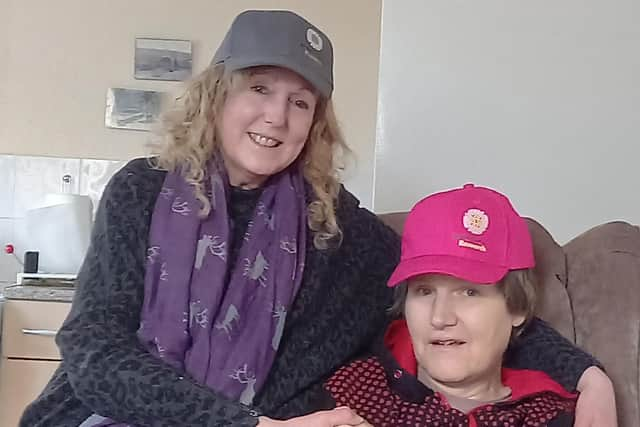

Brain tumours kill more children and adults under the age of 40 than any other cancer, yet historically just one per cent of the national spend on cancer research has been allocated to the disease, according to Brain Tumour Research.
And even when brain tumours are not fatal, they can be utterly life changing.
Liz, aged 61, said: "Andrew's tumour is low grade, so it's not cancerous, but it's had huge impacts.
Advertisement
Hide AdAdvertisement
Hide Ad"The treatment he's had to go through and the surgery have left him now unable to walk, he can't even get out of a chair without a hoist, he can't use mobile phones.
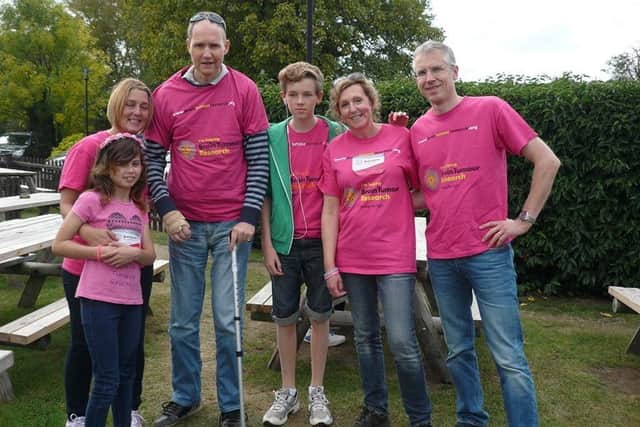

"He hasn't been able to use his right hand for years and years.
"He finds it very difficult to even communicate now. The radiotherapy and all the surgery have had a huge toll on his health."
Andrew first began having excruciating headaches towards the end of 2001, but the GP thought it was due to depression, as his father had died earlier that year.
Advertisement
Hide AdAdvertisement
Hide AdHis brain tumour was not discovered until early 2002, when he had a seizure at home and one of his friends found him and got him to hospital, where he was finally diagnosed.
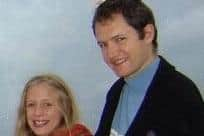

Liz said: "He's had three major surgeries to reduce the size of the tumour but he's had multiple surgeries to remove cysts and the build-up of fluid. They've put in shunts as well, and he's had radiotherapy treatment.
"If you have radiotherapy anywhere else in your body and it took out healthy cells, you wouldn't worry about it. But when it's in the brain and it takes out healthy cells, those cells are probably very important to your cognition or your mobility.
Following treatment, Andrew quite quickly lost the use of his right arm and began dragging his right leg. Now, he cannot walk, stand or communicate easily.
Advertisement
Hide AdAdvertisement
Hide AdLiz said: "His conversation is very, very limited. We've got a book with pictures to help him communicate so he can point at pictures. But if he was trying to tell you something, it could maybe take five minutes just to come out with one or two sentences. So you have to be really patient."
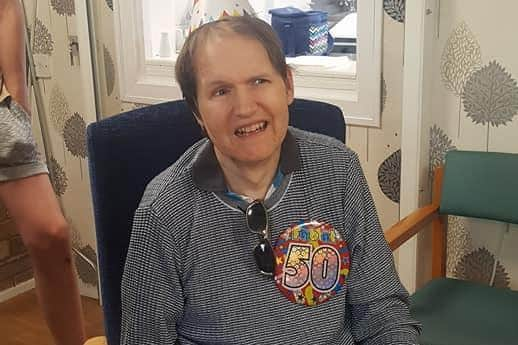

Before his illness, Andrew was a pensions advisor for a major insurance company, but his illness meant he had to give up his career.
Now aged 53, he lives in sheltered accommodation for the elderly, with carers who come in to help him with personal care.
"It's not what somebody his age should be doing," said Liz.
"He loves travelling - he visited at least 50 countries in the world, before he was ill. He travelled with his camera and he used to take these gorgeous photographs which he's got up on his wall and in photo albums.
Advertisement
Hide AdAdvertisement
Hide Ad"He would take sabbaticals from work, maybe go off for a year travelling.
"And I'm so glad he did, because at least he's got those memories now."
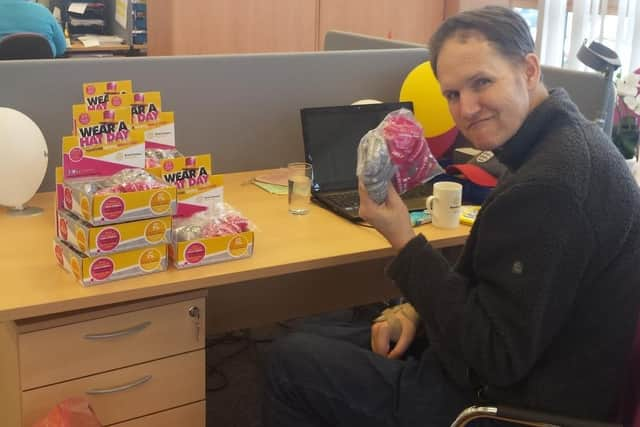

And she added: "He says he's not depressed, he doesn't complain, but it's no life for him living with basically a whole load of old-age pensioners.
"He's been living with them since well before he was 50, because there was no other alternative really - nothing for young people or middle-aged people who can't look after themselves - they have to go and live in sheltered housing with old people.
Advertisement
Hide AdAdvertisement
Hide Ad"It's not at all his vision for how he was going to grow old.
"He still had a lot more countries to visit and cultures to explore."
As a result of Andrew's illness, Liz now works for the local charity Brain Tumour Research, after meeting its founder, Sue Farrington Smith, at the school gates when their children were young.
Liz said: "I'd just moved to Buckingham and her daughter had just started at Buckingham Primary School and we got talking and realised we'd got a brain tumour connection."
Advertisement
Hide AdAdvertisement
Hide AdSue, from Padbury, had already launched one charity, Ali's dream, in memory of her niece who died from a brain tumour.
"She had this vision for a national charity, setting up seven centres of excellence and funding research, and I jumped at it," said Liz
"Andrew has been my inspiration ever since, because I want to give him and all the brain tumour patients a voice."
Wear A Hat Day, on Friday, March 25, is a major fundraiser for Brain Tumour Research, when people at work, at school and elsewhere have fun wearing hats and donate towards the charity's work to help find a cure for brain tumours.
Advertisement
Hide AdAdvertisement
Hide Ad"It's the biggest killer of children and the under-40s, and I don't think people realise that until their family's affected or a friend becomes affected," said Liz.
"And there isn't a cure. We need to make people aware of how prevalent brain tumours are and how lethal they are, and how completely life changing."